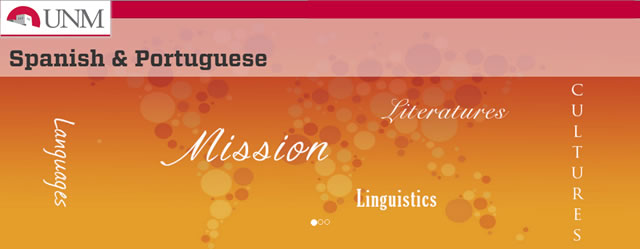
Spanish and Portuguese ETDs
Publication Date
9-1-2015
Abstract
Recognizing the dire need for foundational texts in the burgeoning field of Afro-Mexican Studies, this dissertation illuminates transhistorical social, political, and cultural processes that led to the marginalization (invisibilization) of the African presence in Mexico. The project begins with an examination of the complementary relationship between hierarchy, integration, and 'blanquiamento' in the construction of Mexican national identity during the eighteenth and nineteenth centuries and concludes with a discussion of Afromexicanos in popular culture from the golden age of Mexican cinema to the present. Chapter One demonstrates how from its implementation in the eighteenth century until its abolition by Jose Morelos in 1813 the caste system facilitated the marginalization of the Black population in Mexico. The chapter explores racial and cultural factors that controlled the integration of "Los Afrodescendientes" in the decades following abolition. Chapter Two traces how 'Positivists' used race in the construction of the modern nation and their attempts to marginalize and occlude the African presence on the eve of the Mexican Revolution. This analysis illuminates how Mexico's intelligentsia used scientific racism and 'mestizaje' to minimize or exclude Afrodescendientes from the imaginative discourse that shaped 'the proyecto literario fundacional. Chapter Three interrogates the omission, essentialization, and marginalization of Afrodescendientes in the construction of the image of the ideal 'national citizen' in the then newly imagined twentieth century nation. The chapter explores the interdependence of the ideal national citizen during the revolution and the post revolutionary period, the utopian construction of race, the ideology of mestizaje in José Vasconcelos' La raza cósmica, and the negative treatment of Black figures in canonical literary works such as Fernando Rojas González's La negra Angustias. Chapter Four is dedicated to a close analysis of Joselito Rodriguez's iconic film Angelitos Negros and the debt that film owes to Blackface imagery from the United States and Cuba. The chapter closes with an assessment of the complicated and hihgly charged racial politics that surround Memin Pinguin. The dissertation concludes with a look at the often unacknowledged cultural and social contributions of Mexico's Afrodescendientes and speculates about future directions in Afromexican Studies as an academic discipline.
Degree Name
Spanish & Portuguese (PhD)
Level of Degree
Doctoral
Department Name
Spanish and Portuguese
First Committee Member (Chair)
López, Nancy
Second Committee Member
Arce, Christine B.
Third Committee Member
Vaquera-Vázquez, Santiago
Language
Spanish
Keywords
Afromestizo Identity, Afromexican Identity. Afromexican Studies, Invisibilizacion, African Presence in Mexico, Memin Pinguin, Angelitos Negros, La Negra Angustias, Gonzalo Alguirre Beltran, Raza. Afrodescendientes, Indentidad Nacional Mexico, Afro en la identidad nacional, Historia Mexicana, Cultura Popular de Mexico, La literatura Mexicana
Document Type
Dissertation
Recommended Citation
Careaga-Coleman, Dora. "LA AUSENCIA DE LO AFRO EN LA IDENTIDAD NACIONAL DE MÉXICO: RAZA Y LOS MECANISMOS DE LA INVISIBILIZACIÓN DE LOS AFRODESCENDIENTES EN LA HISTORIA, LA CULTURA POPULAR, Y LA LITERATURA MEXICANA." (2015). https://digitalrepository.unm.edu/span_etds/10
Included in
European Languages and Societies Commons, Latin American Languages and Societies Commons
